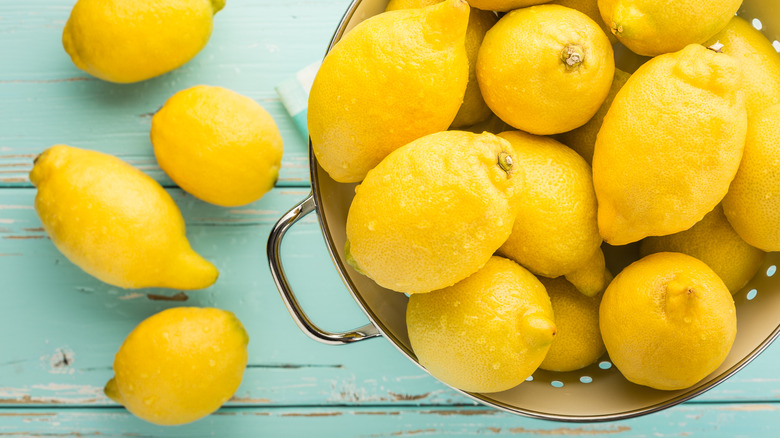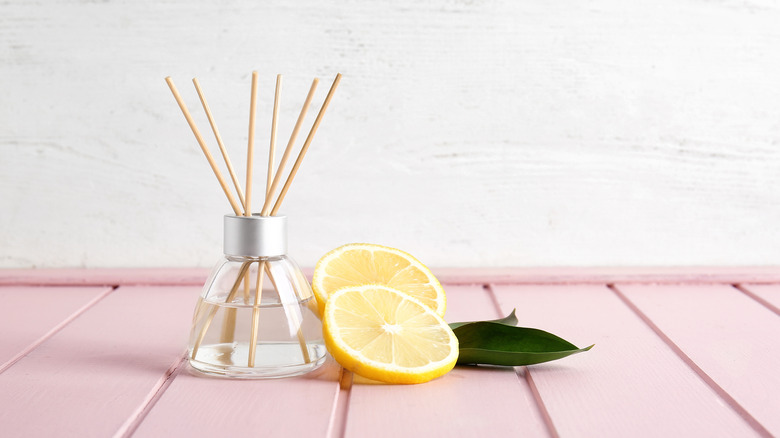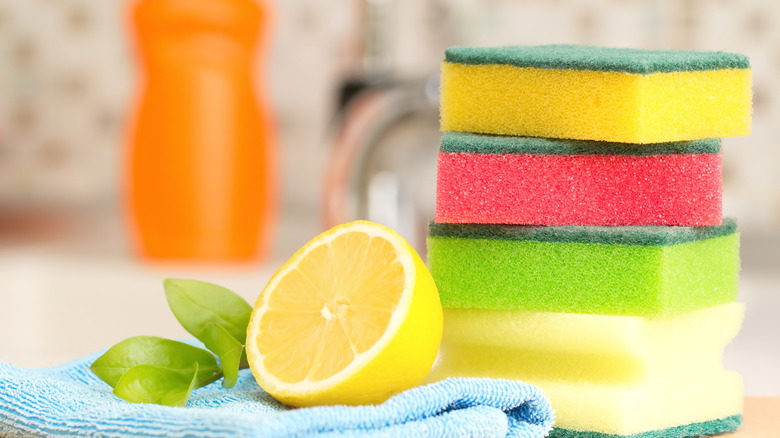Try This Simple Lemon Trick To Deodorize Your Basement In A Flash
Why is "lemon" used as a negative from time to time, like when a car is a lemon because it doesn't work, or in the expression "when life gives you lemons..."? Delicious, brightly scented, and amazingly versatile, it feels more appropriate to use "lemon" to describe positive things. One of the best qualities of this citrus fruit is its potent scent and its use for cleaning and deodorizing — which can be helpful when it comes to your basement.
Stinky, damp basements are common in the summer if you live in a humid area, and there are a good number of non-toxic ways to deodorize your musty basements. Another problem is that extra moisture can lead to mold growth, and a few lemons will do double duty as mold-remover and room deodorizer. Some fresh-squeezed lemon juice, or even bottled juice, applied to mold can rid you of the source of the stink. Earn extra credit by using your leftover lemon peels to brew up a DIY room freshening spray that will make your basement a much more welcoming space.
Make a lemon-peel room freshener
Brimming with essential oils, lemon peels are a valuable source of great smells. Once you've squeezed out all their liquidy goodness, don't toss them into the compost bin. Use the empty fruit halves to make a zesty room freshener. Lemon scraps steeped in alcohol, whether it's odorless rubbing alcohol or vodka, are an easy, budget-friendly way to perfume your stinky basement.
Chop the empty halves of two to four lemons into quarters or smaller. Pack them into a Mason jar, and pour in enough rubbing alcohol or vodka to cover the fruit scraps. Screw on the lid and let the lemon peels infuse the liquid for about a week before you use it. Once it's ready, you can use it in a spray bottle or a reed diffuser. If you don't have one, you can DIY your own reed diffuser with items you likely already have at home!
Lemon juice kills mold
Cleaning professionals also love lemon juice for its non-toxic ability to clean almost anything. There are ways lemons can leave kitchens spotlessly clean and their juice can also get the job done as a substitute for window cleaner. Experts state that because of its 5 percent acid content, lemon juice is effective at killing mold. And its delightful aroma helps mask the smell caused by unwanted mold.
Tackling stinky and even harmful mold with lemons is as simple as squeezing the juice onto a sponge, rubbing it onto moldy areas, and watching its unsightly stains fade. It's best to use undiluted lemon juice to take advantage of its potency. BeyondToxics.org recommends scrubbing the affected areas with soap and water first before applying the straight lemon juice. They also advise that it's crucial to catch mold problems in their early stages. Once mold is well-established, you may need to resort to harsh conventional cleaning agents or professional attention.


